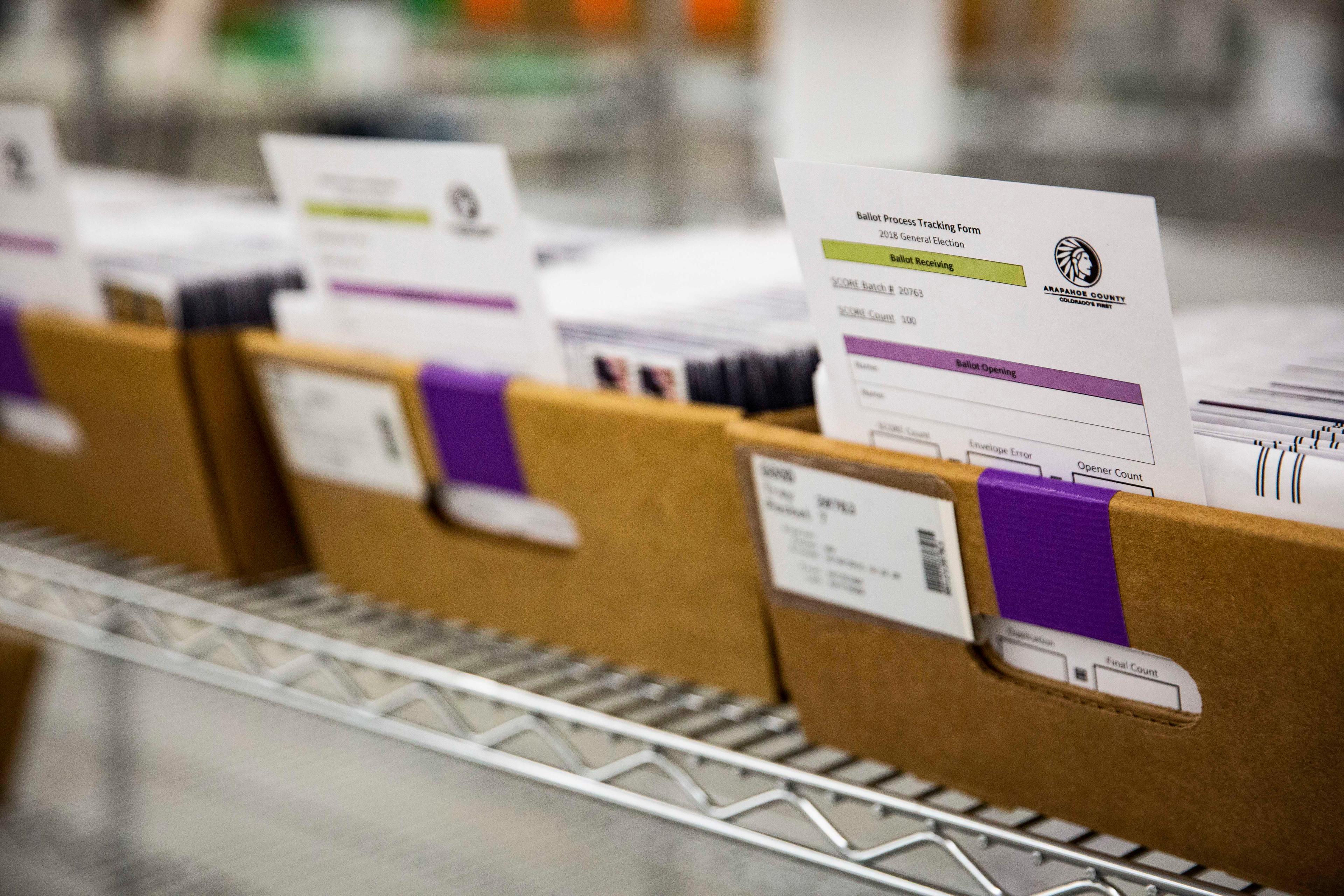
Long lines and crowded polling places aren’t fun in the best of times. During a pandemic, they can be downright dangerous.
Colorado is one of only five states that mail a ballot to every registered voter, whether they request it or not. But in the age of coronavirus, many would like to see that list of states grow.
“If we do not act as a nation very quickly, Americans who are Republicans, Democrats, and Independents will all be faced with the question: 'Do I go into a crowded polling location and risk my health, or do I sit home and not vote?'” said Colorado Secretary of State Jena Griswold, who has been talking up the Colorado model of all-mail voting in recent months.
Moving to all-mail voting takes money, for everything from new machinery to postage. Congress did earmark $400 million in the CARES Act to help with the 2020 elections, money states could use for these efforts. But the Election Assistance Commission, which distributes the funds, said states only get the money they put up a match 20 percent out of their own budgets. It’s a tough ask when many states are looking to slash spending this year amid the coronavirus-related recession.
Democratic Rep. Joe Neguse of Boulder has introduced legislation to get rid of the match requirement. He said it’s a vestige from an earlier election funding bill and not something Congress ever intended to include in the CARES Act.
“It’s a very important, common-sense measure that we think could help our states,” Neguse said of his bill. “Particularly as they deal with the economic fallout from the COVID-19 pandemic.”

Fellow Coloradan Sen. Michael Bennet has teamed up with Republican Sen. Susan Collins of Maine to introduce a similar bill in the Senate.
Some object to the idea that the federal government should put up the money for states that want to expand mail balloting. Former Secretary of State Wayne Williams, who helped implement the move to all-mail ballots, has pointed out that Colorado worked with county leaders and state lawmakers to pay for the state’s system.
“With the exception for a small amount ... we did it all using state and local money,” Williams said. “For those who have not been as proactive, to say that the rest of the country should bail them out, I have a little bit of concern as a fiscal conservative. There are certain things that you as a state have responsibility for.”
The big difference between when Colorado implemented the system and now, though, is coronavirus. As Griswold noted, these are “incredibly unique circumstances.”
“I do think that it’s a relatively small amount that’s needed to make sure that states are able to offer elections that work,” she said. “I do believe it’s the federal government’s duty during this time of pandemic, and during this time of states having to slash their budgets, to assist states in expanding mail ballots, and secure elections, and safe elections during COVID-19.”
The issue of all-mail voting has become a partisan one in Washington, D.C. President Trump has taken direct aim at the practice, which he claims without evidence will be abused and undermined. The claim earned him a fact check on twitter. However, Colorado and other mail-ballot states have processes in place to address the concerns he has raised.
Even in Colorado’s Congressional delegation, there’s a split over whether moving to all-mail ballots is a good thing.
Colorado Sen. Cory Gardner, a couple of weeks after the passage of the CARES Act, said that it should be a state decision.
“Washington, D.C. should not run the state’s elections,” he told Politico. “If a state determines that’s the way it wants to go, a state should make that decision.”
But many experts argue that states will need federal dollars to make the transition by the fall. The Brennan Center for Justice originally estimated it would cost $2 billion to ensure the safety and security of state and local elections. It has since updated its estimate to $4 billion.









